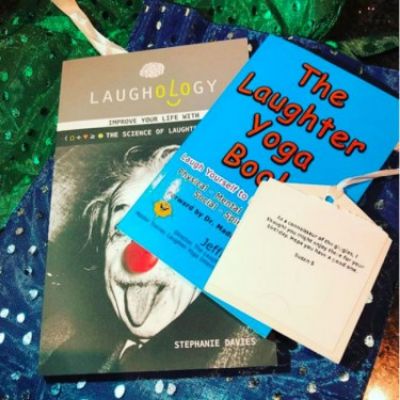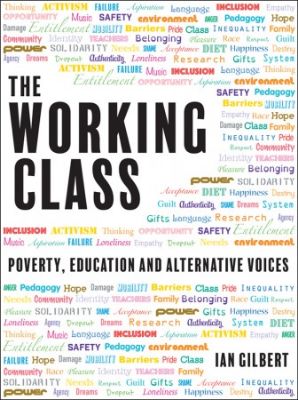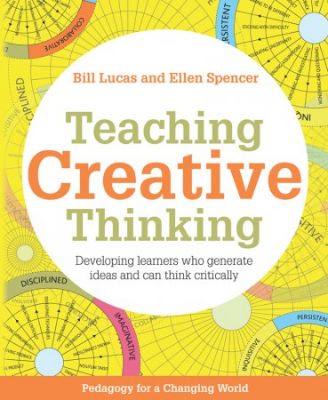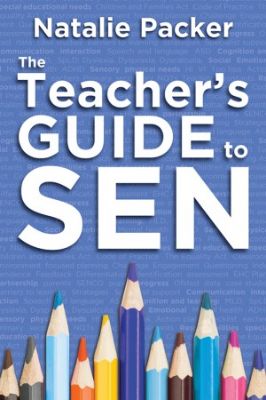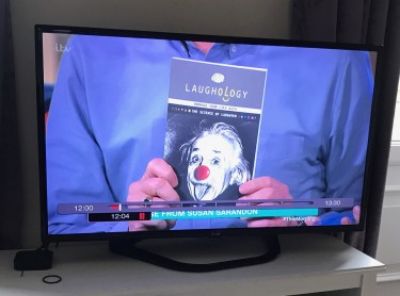Cookies help us deliver our services. By using our services, you agree to our use of cookies.
News
Phillip Schofield receives a copy of 'Laughology' as a birthday present
Tuesday, 3 April 2018
‹Click here to read further.
For more information and to purchase your copy of 'Laughology' by Stephanie Davies - click here.
Read more
For more information and to purchase your copy of 'Laughology' by Stephanie Davies - click here.
'Bullied, bereaved and poor – would I have succeeded today?'
Tuesday, 3 April 2018
‹Click here to read the full article in The Guardian today.
Click here for more information on the newly published 'The Working Class' and to purchase your copy now!
Read more
Click here for more information on the newly published 'The Working Class' and to purchase your copy now!
'Teaching Creative Thinking' is reviewed by Russell Grigg
Tuesday, 3 April 2018
œThis is a very welcome and timely book. Creative thinking is likely to feature in the 2021 Programme for International Student Assessment (PISA) tests, run by the Organisation for Economic Co-operation and Development. The authors, based in the Centre for Real-World Learning at the University of Winchester, are well placed to discuss the subject. Bill Lucas co-chairs the OECD™s advisory group charged with drawing up a model to define creativity and to explore the feasibility of a creativity assessment. If this goes ahead and current trends continue, the book should hold relevance in Wales given the poor performance of its students in PISA over recent years. A few schools in Wales feature among those from eleven other countries currently undertaking research for the OECD to find out more about the thorny question of assessing creativity.
The book is organised into seven chapters. The first three chapters introduce the concept of creative thinking and teaching for capability. The authors see creativity as a matter of nurturing five capabilities or habits of mind: being inquisitive, persistent, collaborative, disciplined and imaginative. Each of these is broken down further into sub-habits. Persistence, for example, includes tolerating uncertainty, sticking with difficulty and daring to be different. In a field characterised by complex terminology, the refreshing simplicity of language makes the book very readable.
This is not to suggest that the book is superficial. Appropriate academic references are provided and the contributions of various researchers noted. The authors particularly draw on the work of Lee Shulman in setting out teaching and learning methods (˜signature pedagogies™) which they regard as the unique DNA of creative thinking. These include problem-based learning, where teachers use real-world problems and rigorous enquiry to enable learners to conduct research and apply their knowledge and skills to develop potential solutions. Chapters 4 to 7 provide extended examples of how schools have embedded creative thinking across and beyond the curriculum, including engaging parents, arranging work placements, school trips and the professional development of staff. The case studies will appeal to teachers and school leaders eager to read about examples of how the teaching of creative thinking works in practice. The A“Z of teaching and learning methods for developing creative thinkers, which features in the appendix, is also likely to prove popular. An index would also have been beneficial.
Chapter 7 is particularly helpful in addressing some of the common doubts and criticisms associated with the teaching of creative thinking. Curriculum constraints, tight budgets, examination pressures and initiative fatigue are familiar cries. The authors respond well to these and present a convincing argument for schools to take creative thinking more seriously. They gently challenge widely held preconceptions e.g. ˜school inspectors won™t be interested™ and ˜It™s another one of those fads that will be forgotten when the pressure mounts™, leaving the reader reassured and in a reflective, upbeat mood. The authors are essentially challenging readers to think about the purpose and values of education. This is topical given the recent UK parliamentary inquiry on the subject and, in Wales, Graham Donaldson™s vision for creativity to be central to young people™s experience at school. Teachers in Wales who now face the challenge of implementing the renaissance of creativity in the new curriculum would be well advised to dip into this book as a starting point. - Russell Grigg, Ministry of Education, United Arab Emirates
For more information and to purchase a copy of ˜Teaching Creative Thinking™ by Bill Lucas and Ellen Spencer - click here.
Read more
The book is organised into seven chapters. The first three chapters introduce the concept of creative thinking and teaching for capability. The authors see creativity as a matter of nurturing five capabilities or habits of mind: being inquisitive, persistent, collaborative, disciplined and imaginative. Each of these is broken down further into sub-habits. Persistence, for example, includes tolerating uncertainty, sticking with difficulty and daring to be different. In a field characterised by complex terminology, the refreshing simplicity of language makes the book very readable.
This is not to suggest that the book is superficial. Appropriate academic references are provided and the contributions of various researchers noted. The authors particularly draw on the work of Lee Shulman in setting out teaching and learning methods (˜signature pedagogies™) which they regard as the unique DNA of creative thinking. These include problem-based learning, where teachers use real-world problems and rigorous enquiry to enable learners to conduct research and apply their knowledge and skills to develop potential solutions. Chapters 4 to 7 provide extended examples of how schools have embedded creative thinking across and beyond the curriculum, including engaging parents, arranging work placements, school trips and the professional development of staff. The case studies will appeal to teachers and school leaders eager to read about examples of how the teaching of creative thinking works in practice. The A“Z of teaching and learning methods for developing creative thinkers, which features in the appendix, is also likely to prove popular. An index would also have been beneficial.
Chapter 7 is particularly helpful in addressing some of the common doubts and criticisms associated with the teaching of creative thinking. Curriculum constraints, tight budgets, examination pressures and initiative fatigue are familiar cries. The authors respond well to these and present a convincing argument for schools to take creative thinking more seriously. They gently challenge widely held preconceptions e.g. ˜school inspectors won™t be interested™ and ˜It™s another one of those fads that will be forgotten when the pressure mounts™, leaving the reader reassured and in a reflective, upbeat mood. The authors are essentially challenging readers to think about the purpose and values of education. This is topical given the recent UK parliamentary inquiry on the subject and, in Wales, Graham Donaldson™s vision for creativity to be central to young people™s experience at school. Teachers in Wales who now face the challenge of implementing the renaissance of creativity in the new curriculum would be well advised to dip into this book as a starting point. - Russell Grigg, Ministry of Education, United Arab Emirates
For more information and to purchase a copy of ˜Teaching Creative Thinking™ by Bill Lucas and Ellen Spencer - click here.
A fantastic review of 'The Teacher's Guide to SEN' in SEN magazine
Tuesday, 3 April 2018
"The book is divided into two main parts, with the first providing information on the current state of SEN, EHC plans and the implications of œhigh quality teaching within an inclusive teaching environment. Further chapters cover the elements of successful SEN support and working in partnership with other professionals and parents.
Part 2 of the publication is titled œThe Teacher™s Toolkit and covers areas such as: communication and interaction; cognition and learning; social, emotional and mental health issues; and sensory physical needs.
The chapters share a common structure that details classroom strategies and specific activities, with links to published resources and websites. Packer includes short case studies that are based on classroom experience and on advice from practitioners and specialist organisations. Chapters end with short reflective activities and links to additional sources of professional development.
The book closes with a useful list of abbreviations, a glossary of related terms and a description of the roles of a range of associated professionals.
This is a practical and informative text that would be of value to a wide range of classroom practitioners seeking information and strategies for delivering more inclusive provision" - Mary Mountstephen, Special Educational Needs magazine, March-April 2018, Issue 93.
Click here for more information and to purchase your very own copy of 'The Teacher's Guide to SEN' by Natalie Packer now!
Read more
Part 2 of the publication is titled œThe Teacher™s Toolkit and covers areas such as: communication and interaction; cognition and learning; social, emotional and mental health issues; and sensory physical needs.
The chapters share a common structure that details classroom strategies and specific activities, with links to published resources and websites. Packer includes short case studies that are based on classroom experience and on advice from practitioners and specialist organisations. Chapters end with short reflective activities and links to additional sources of professional development.
The book closes with a useful list of abbreviations, a glossary of related terms and a description of the roles of a range of associated professionals.
This is a practical and informative text that would be of value to a wide range of classroom practitioners seeking information and strategies for delivering more inclusive provision" - Mary Mountstephen, Special Educational Needs magazine, March-April 2018, Issue 93.
Click here for more information and to purchase your very own copy of 'The Teacher's Guide to SEN' by Natalie Packer now!
Fantastic pupils work inspired by 'Opening Doors to Famous Poetry and Prose'
Tuesday, 3 April 2018
‹Click here to read the full piece of brilliant work and many other pupils work also inspired by Bob Cox's 'Opening Doors to Famous Poetry and Prose' - discover more information and order your copy here now!
Who else spotted Phillip Schofield holding a copy of 'Laughology' on 'This Morning'?
Thursday, 29 March 2018
A practical self help guide to using laughter and humour as a thinking skill and life skill to make you feel better and enable you to communicate more effectively. Laughology, written in an easy to understand, fun, informative way takes a psychological look at how humour can influence your behaviour, help you feel better and live a happier life.
Take a look inside the book here or order your copy here.
Read more
Take a look inside the book here or order your copy here.

